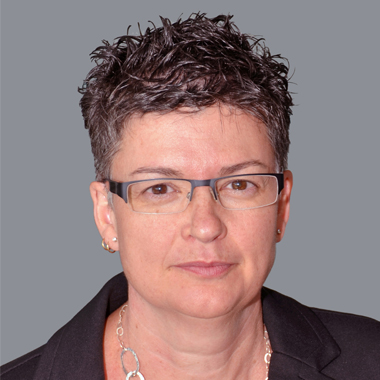
Lynne Simons is the director of policy integration & communications for the Region of Halton, Ontario, Canada. Halton Region, located on the eastern end of the Greater Toronto Area (the metropolitan and suburban areas that make up the GTA) and directly on Lake Ontario.
Halton is an upper tier municipality (similar to a county in the United States) with responsibility for a range of services including public health, social services, water, wastewater, regional roads, waste management, and paramedic services. Home to over 500,000 residents, Halton is one of the fastest-growing areas in Canada and one of its most affluent. The region comprises four local municipalities (city of Burlington, and towns of Milton, Halton Hills, and Oakville).
Lynne comments that Halton is home to some of the best agricultural land in the country as well as part of the Niagara Escarpment (a UNESCO World Biosphere Designation feature) and Lake Ontario. “Halton is a desirable location for residents and business, with a well-protected natural heritage and an active and caring community. Add in the safety of the community, the cultural diversity, and the close commute to downtown Toronto (and one hour from the U.S. border), and there is a great deal of interest in Halton.”
As part of the CAO’s Office, Lynne is responsible for corporate policy development, implementation, and oversight; intergovernmental relations/advocacy; communications (internal and external); the region’s call center; and public engagement. She also plays a key role in issue identification and management. Her skills revolve around public policy, facilitation, and issues management. She is known to work behind the scenes to assist in problem resolution—helping people get along and understand one another by building trust. Recently, she has been very involved in the creation of a communications framework and social media plan for Halton.
When asked about the greatest challenges facing local governments, Lynne responded, “There is the economy; changing demographics and cultural diversity; and the legitimate and growing expectation of residents that we meet community needs with accessibility, transparency, and fiscal responsibility. It is an exciting time for municipal government. I am not so sure the issues were all that different 10, 50, or even 100 years ago, yet we now live in a time where costs are skyrocketing, community trust is decreasing, and the ability to comment on and participate in local government is at an all-time high.”
A member of ICMA and the Canadian Association of Municipal Administrators since 2011, Lynne’s engagement with ICMA developed through participation in Leadership ICMA and the support to do so from her current and previous CAO. “Our office was in a time of flux and we needed to find our strengths and support staff to achieve their and our greatest potential. It was the best training/life/work experience I could have had. I saw the commitment to the profession and public service in the eyes of my new friends. I learned that Canadians are less like Americans than I thought, but all of us in ICMA are driven by the same commitment. I saw demonstrated over and over that some people are just meant to serve. I am honoured to be in this class and to be engaged with ICMA.” She went on to credit the staff that support ICMA every day. “They are smart, hardworking, committed, and cool, again…a one-stop shop of service.”
“My connection to the association now happens daily as I read the e-mails and look at the website, and the growth I have obtained through Leadership ICMA continues in the work I do in Halton. While I will always be a little bit north of my friends, I will always feel a part of ICMA.”
Through her conversations and work with Leadership ICMA colleagues, Lynne has observed some key commonalities and differences between Canadian and U.S. local governments: “The greatest similarity is people are people and human nature never disappoints. Our ICMA team shared many interesting local issues and problem-solving approaches. I am a stranger to some of the issues facing the profession in the United States. In Ontario, municipalities are required to have chief administrative officers, so the constant battle to prove the worth of a city manager or CAO is foreign to me.” Other differences include the range of funding structures, taxation, and municipal elections. In Ontario there are elections every four years, which allows councils to engage in a long-term and strategic way.
With Halton for 22 years, Lynne started as an environmental planner then eventually became the senior advisor to the CAO and now director of policy integration & communications. Prior to that she was environmental health specialist with the city of Toronto and began her public sector career as a researcher and planner with the city of Niagara Falls. During her career, she has worked on research and data collection on natural heritage and contaminated sites, forestry management, official plan reviews and the study of environmentally sensitive areas, the down loading of emergency medical services, and report review for the council.
She holds a bachelor’s of arts in urban and environmental studies and geography from Brock University in St. Catharines, Ontario, and a master's of environmental studies with specializations in planning and health promoting communities from York University in Toronto. Lynne is a member of the Canadian Institute of Planners, was past president and long-standing board member of the Ontario Healthy Communities Coalition, and now serves on a variety of local nonprofit boards.
New, Reduced Membership Dues
A new, reduced dues rate is available for CAOs/ACAOs, along with additional discounts for those in smaller communities, has been implemented. Learn more and be sure to join or renew today!
